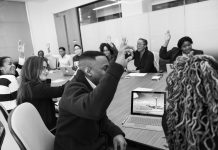Critical Thinking Exercises For Better Client Results
# Critical Thinking Exercises for Improved Client Outcomes
Critical thinking is an essential skill for professionals aiming to achieve successful outcomes for their clients. It goes beyond mere compliance with client requests and involves a deep understanding of their needs and objectives. This blog post will explore the importance of critical thinking in client relationships and provide practical exercises to enhance these skills.
## The Importance of Critical Thinking
Critical thinking is not just an academic concept; it is a practical approach to problem-solving and decision-making. It requires individuals to question assumptions, analyze information, and evaluate different perspectives. In the context of client relationships, critical thinking can prevent misunderstandings and ensure that the services provided align with the client’s true goals.
Many professionals fall into the trap of being overly agreeable, thinking that saying “yes” to every client request will foster a positive relationship. However, this approach often leads to mediocrity and can damage the business in the long run. Clients seek your expertise, and it is your responsibility to guide them toward the best solutions, even if that means challenging their ideas.
## Developing Critical Thinking Skills
To enhance your critical thinking abilities, consider the following exercises:
### Question Everything
Begin by adopting a mindset of inquiry. Do not accept client requests at face value. Instead, ask probing questions to uncover the underlying motivations and objectives. Consider the following:
– Why does the client want this specific outcome?- What are the long-term goals associated with this project?- Are there alternative methods that could achieve better results?
By questioning the status quo, you can identify potential issues early and propose more effective solutions.
### Play Devil’s Advocate
Engage in constructive skepticism by challenging ideas and exploring potential pitfalls. This exercise involves considering the worst-case scenarios and developing contingency plans. Ask yourself:
– What could go wrong with this approach?- What are the risks involved, and how can they be mitigated?- If this plan fails, what is the backup strategy?
This practice is not about fostering negativity but rather about preparing for unforeseen challenges. A proactive mindset can help you navigate difficulties more effectively.
### Learn from Mistakes
Mistakes are inevitable in any professional journey. However, they also present valuable learning opportunities. Reflect on past experiences where projects did not go as planned. Analyze what went wrong and why. For example, consider a situation where you took on a project that exceeded your capabilities. Instead of viewing it solely as a failure, recognize the lessons learned:
– Understand your limits and seek assistance when necessary.- Develop a clearer scope of work before committing to projects.- Establish realistic timelines and budgets.
By learning from your mistakes, you can make more informed decisions in the future.
### Build a Supportive Network
Surround yourself with individuals who can provide diverse perspectives and constructive feedback. Engaging with colleagues or mentors who possess more experience can enhance your critical thinking skills. However, it is essential to maintain a focused circle. Too many differing opinions can lead to confusion and indecision. Additionally, be cautious about hiring friends, as personal relationships can complicate professional dynamics.
## Navigating Challenges with Resilience
Despite your best efforts, challenges may arise that are beyond your control. In these moments, it is essential to remain resilient and adaptable. While critical thinking can help you anticipate and mitigate risks, it is also crucial to have faith in your abilities and the process. This does not mean waiting passively for solutions to appear; rather, it involves taking proactive steps while remaining open to unexpected opportunities.
Time is one of your most valuable assets. Utilize it wisely by focusing on high-impact projects and relationships. Critical thinking can help you identify and eliminate time-wasting activities and toxic relationships that hinder your progress.
## Conclusion
In conclusion, whether you are building a new venture or navigating the complexities of entrepreneurship, critical thinking is a vital skill that can significantly enhance client outcomes. It distinguishes those who are genuinely committed to their work from those who merely dabble in it.
For those who are just starting their professional journey, remember that success is attainable with dedication and a critical mindset. I transitioned from facing significant challenges to building a successful business over 27 years. If I can achieve this, so can you. The journey begins with critical thinking, decisive action, and unwavering perseverance.
Embrace the challenge of elevating your critical thinking skills. Your clients, your business, and your future self will all benefit from this commitment. Let us move forward with determination and purpose.































